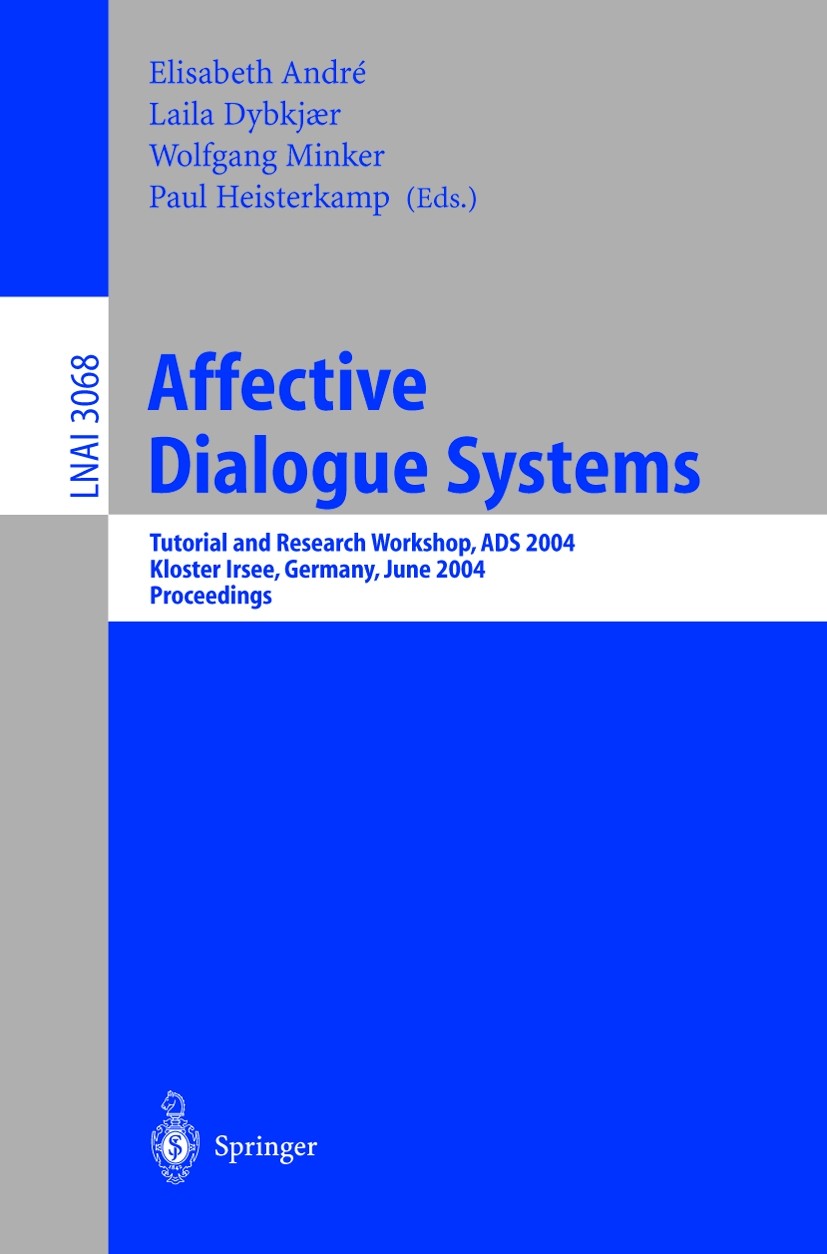| 期刊全稱(chēng) | Affective Dialogue Systems | | 期刊簡(jiǎn)稱(chēng) | Tutorial and Researc | | 影響因子2023 | Elisabeth André,Laila Dybkj?r,Paul Heisterkamp | | 視頻video | http://file.papertrans.cn/151/150622/150622.mp4 | | 發(fā)行地址 | Includes supplementary material: | | 學(xué)科分類(lèi) | Lecture Notes in Computer Science | | 圖書(shū)封面 |  | | 影響因子 | Human conversational partners are able, at least to a certain extent, to detect the speaker’s or listener’s emotional state and may attempt to respond to it accordingly. When instead one of the interlocutors is a computer a number of questions arise, such as the following: To what extent are dialogue systems able to simulate such behaviors? Can we learn the mechanisms of emotional be- viors from observing and analyzing the behavior of human speakers? How can emotionsbeautomaticallyrecognizedfromauser’smimics,gesturesandspeech? What possibilities does a dialogue system have to express emotions itself? And, very importantly, would emotional system behavior be desirable at all? Given the state of ongoing research into incorporating emotions in dialogue systems we found it timely to organize a Tutorial and Research Workshop on A?ectiveDialogueSystems(ADS2004)atKlosterIrseein GermanyduringJune 14–16, 2004. After two successful ISCA Tutorial and Research Workshops on Multimodal Dialogue Systems at the same location in 1999 and 2002, we felt that a workshop focusing on the role of a?ect in dialogue would be a valuable continuation of the workshop series. Due to its interdisciplinary natur | | Pindex | Conference proceedings 2004 |
The information of publication is updating

|
|
 |Archiver|手機(jī)版|小黑屋|
派博傳思國(guó)際
( 京公網(wǎng)安備110108008328)
GMT+8, 2025-10-27 02:21
|Archiver|手機(jī)版|小黑屋|
派博傳思國(guó)際
( 京公網(wǎng)安備110108008328)
GMT+8, 2025-10-27 02:21


